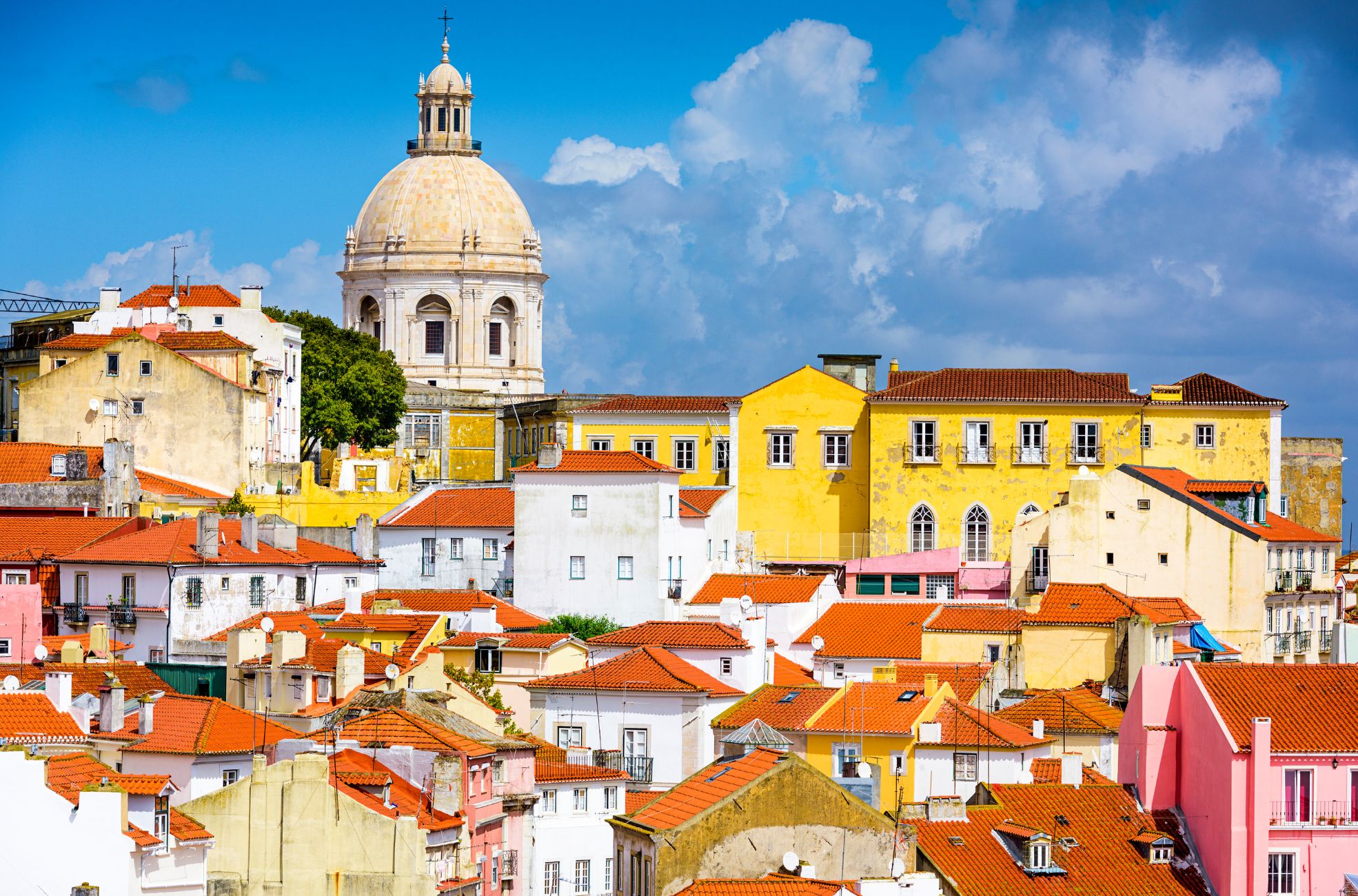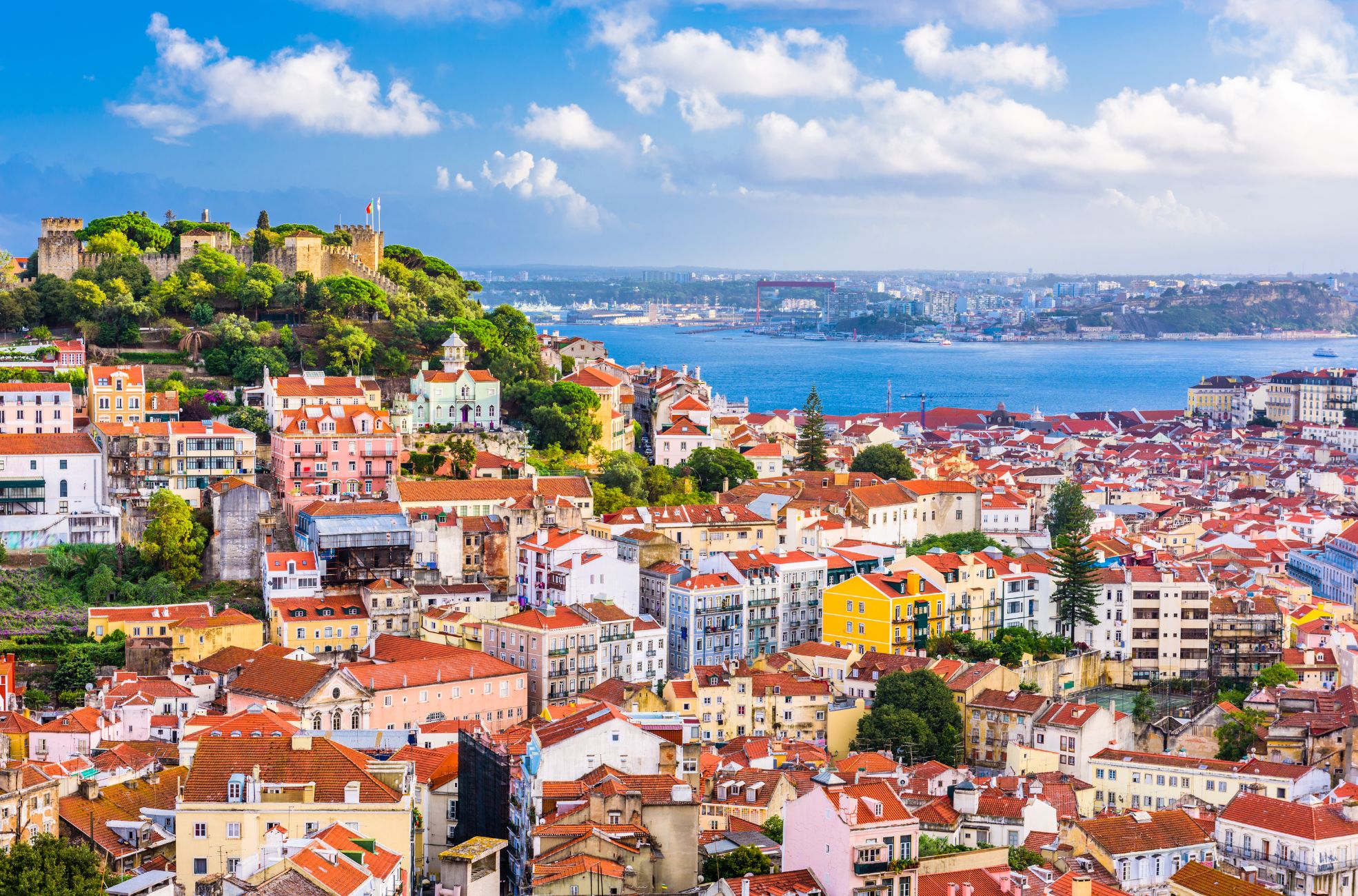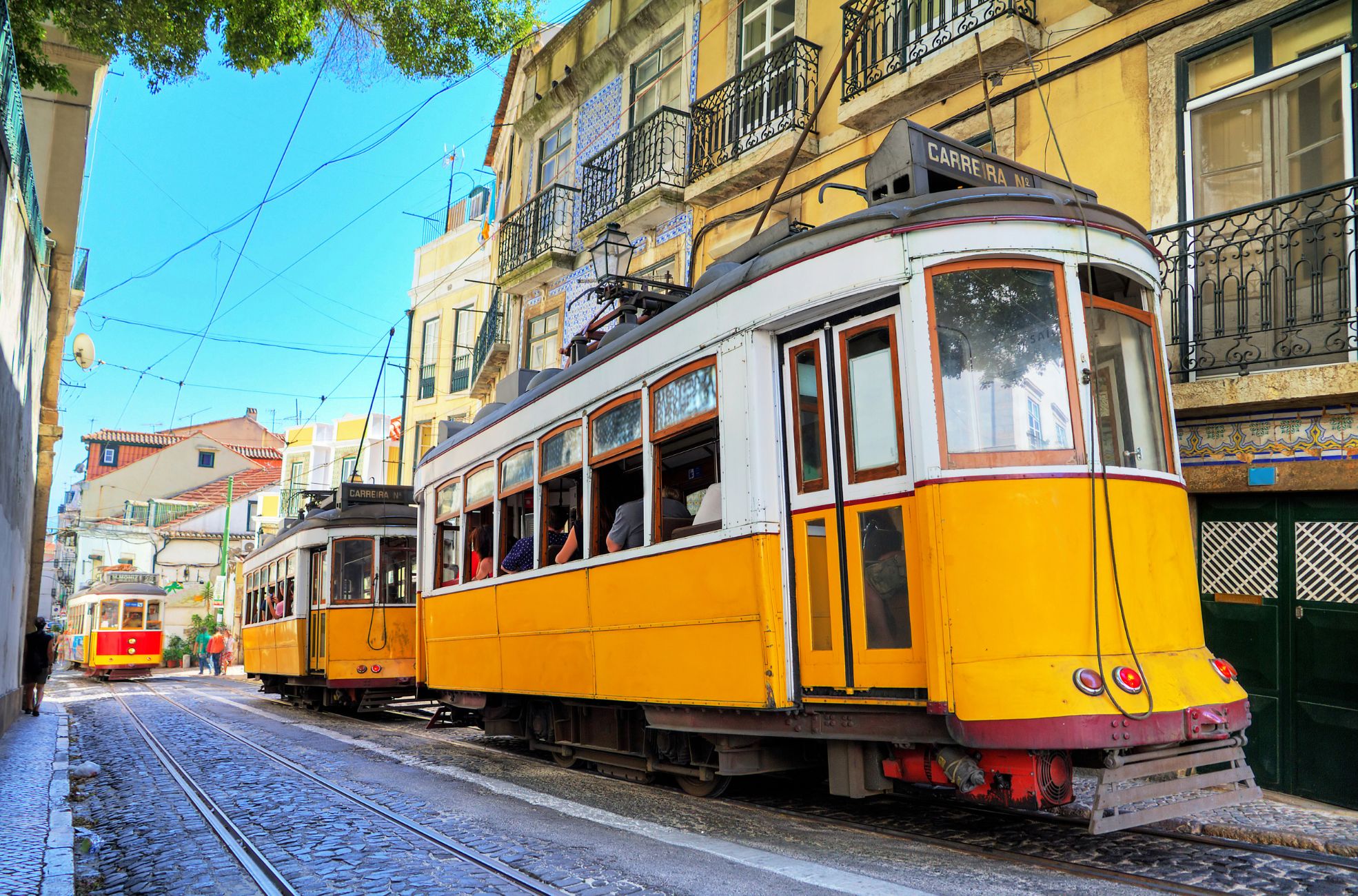Suppose you’re contemplating how to move to Portugal from the USA. In that case, you’re embarking on an exciting journey that blends the allure of European charm with the practicalities of international relocation. This guide walks you through the essential steps, from understanding visa requirements to settling into the vibrant Portuguese culture. Whether you’re attracted by Portugal’s golden visa program, its cost-effective living, or the high quality of life, this comprehensive resource will equip you with the knowledge you need to make your transition as smooth as possible. Prepare to immerse yourself in legal procedures, financial considerations, and cultural integration that will pave the way for your new life in Portugal.
Can a US citizen move to Portugal?
Visa Requirements for US Citizens
If you’re a US citizen dreaming of moving to Portugal, you’ll need to get familiar with the visa requirements first. Like many European countries, Portugal has specific entry and residency visa requirements for non-EU citizens. You can enter Portugal without a visa for up to 90 days for tourist or business purposes.
But if you’re planning to stay longer, you’ll need a permanent residence or visa. That’s where the Golden Visa Program comes into play.
Portugal’s Golden Visa Program
The Portugal Golden Visa program, officially known as the Residence Permit for Investment Activity (ARI), offers non-EU citizens a way to obtain residency rights in Portugal through investment. Since its launch in October 2012, the program has attracted over $7.5 billion in investment.
With the Golden Visa, you could be on your way to permanent residency and citizenship in Portugal after five years, one of Europe’s quickest routes. To qualify for a tech visa, you need to invest at least $270,000, which is quite reasonable compared to other European countries. Plus, you don’t have to move to Portugal full-time; staying just seven days per year on average will do.
The startup visa program offers various investment options, including venture capital funds, company formation, and national heritage preservation. But take note, as of October 2023, real estate investments and capital transfers of $1.5 million are no longer on the table for the Golden Visa.
As a US citizen, you’re eligible for the Golden Visa, and it might catch your eye because of the tax perks for foreign-owned real estate and the chance to grow your business. The program also covers your family, including your spouse, dependent children, and parents over 65.
To apply, you’ll need a clean criminal record from both Portugal and the US, and your investment funds must come from outside Portugal. You’ll also need a Portuguese bank account and a tax identification number (NIF) before making the investment.
The retirement visa application process starts with submitting documents online to Serviço de Fronteiras e Estrangeiros (SEF), and then there’s an in-person interview. The initial Golden Visa card is valid for two years and requires you to spend 14 days in Portugal during that time. After that, you can renew the card for another two years, and at the end of the fifth year, you can go for permanent residency or citizenship or stick with the Golden Visa program.
Having a Golden Visa lets you live, work, and study in Portugal, with access to public services like healthcare and education. It also means you can travel visa-free within the Schengen Area and, once you’ve got dual citizenship, to 188 countries with a Portuguese passport.
The financial side of things includes the investment and legal and government application fees. These fees vary and can add up, so hiring an experienced law firm to navigate the visa application and renewal process is smart. Legal fees can range from $10,790 to $32,366 for a family of four over five years, usually paid in instalments.
It’s also important to consider the tax implications of the Golden Visa program. You won’t have to pay taxes if you’re in Portugal for less than 183 days a year. But if you become a tax resident, you’ll need to pay taxes in Portugal. However, the non-habitual residency (NHR) program can offer tax exemptions to soften the blow for the first ten years.

Is it worth moving to Portugal from the US?
Cost of Living In Portugal Vs. USA
When considering relocation, the cost of living is a significant factor. Portugal is recognized for its affordability within Western Europe. Compared to the US, living expenses are generally lower.
On average, consumer prices, including rent, are substantially higher in the US. Dining out and purchasing groceries are notably more expensive in the US, with restaurant and grocery prices being approximately 91% and 89% higher, respectively.
In Lisbon, the disparity in living costs becomes more pronounced. Excluding rent, consumer prices in Lisbon are about 38% lower than in Washington, DC. Rent itself is around 52% less expensive, and dining out is 42% less costly. Groceries follow the trend, being around 46% cheaper. However, the local purchasing power in Lisbon is significantly lower, which could influence the perceived affordability based on income and lifestyle.
The affordability extends beyond food and housing. Fresh produce, seafood, and meat are more budget-friendly, as is alcohol. The social aspect of dining out is also more accessible due to its affordability.
With some exceptions, transportation costs in Portugal are generally lower than in the US. Public schooling is provided at no cost, offering considerable savings. Exploring Portugal is also economical, allowing for enjoyment of its diverse landscapes and historical sites without a hefty price tag.
Quality of Life In Portugal
The quality of life is a compelling reason for Americans to consider Portugal as a new home. Portugal ranks significantly higher than the US in terms of quality of life, which is reflected in its healthcare, education, and general well-being.
Portugal’s healthcare system is highly regarded, positioned 25th globally. While not entirely free, healthcare expenses are reasonable and unlikely to cause the financial strain associated with medical costs in the US. Private healthcare insurance is also more accessible.
Housing is more affordable, contributing to Portugal’s allure, particularly for retirees. The country’s climate, with its abundant sunshine, enhances its desirability.
However, relocating involves more than just logistical preparations. It’s essential to secure the appropriate visa and residency permits. The Golden Visa program is a notable pathway, granting residency to investors and their dependents for making a qualifying investment. With the necessary documentation, you and your family can establish legal residence. The NHR Scheme is another benefit, offering substantial tax advantages for a decade. The welcoming community, robust education, and healthcare systems further increase Portugal’s attractiveness. Yet, it’s important to be mindful of potential challenges, such as lower average incomes and sometimes sluggish administrative processes. Despite these issues, Portugal continues to be a top choice for expatriates, providing a superior quality of life at a more affordable cost.
How Does The Healthcare System Work For US Expats In Portugal?
If you’re a US expat thinking about moving to Portugal, getting to know the healthcare system is key. Portugal offers a hybrid healthcare system, which includes both public and private services. The public system, known as the Serviço Nacional de Saúde (SNS), provides universal health coverage and is financed through taxes.
The SNS helps Portugal achieve an impressive average life expectancy of 82.47 years. Once you arrive in Portugal, you’ll find that healthcare is delivered through a network of local and regional health centers and hospitals. Kids under 18 and seniors over 65 get free healthcare, while other residents benefit from subsidized medical costs.
Medications given during hospital stays and urgent care services are usually free. But for most services, there’s a small fee, making sure the healthcare system is accessible to all citizens and legal residents. To tap into state-provided medical services, you need to register with your local council or Junta de Freguesia.
This registration is vital to secure your right to healthcare services. If you’re moving to Portugal through the Golden Visa program, remember that you must register with the SNS to use its services, as Golden Visa recipients aren’t automatically included in public healthcare. Until you get your Golden Visa, you’ll need travel insurance from your home country.
This insurance should cover you until you’re eligible for the SNS. For those choosing the D7 Visa, health coverage for one year is a must, and after that, you can use public healthcare once you have the D7 Residence Permit. Private health insurance is a popular option for many expats, including Golden Visa holders, as it provides access to private doctors and clinics, often with shorter wait times.
Well-known private insurance companies in Portugal include Allianz and Cigna Global. Private insurance isn’t just about convenience; it also opens the door to a wider range of services, some of which the SNS might not cover, like certain dental and mental health services. The Portuguese healthcare system is efficient, with emergency services known for their quick response.
For less urgent matters, private insurance can help you get appointments faster. It’s also comforting for many English-speaking expats that nearly all public and private doctors speak English well, making communication much easier. If you’re working in Portugal and contributing to the Social Security system, you’re eligible to use the public health service.
This includes non-habitual residents who are paying into social security. However, if you’re not contributing, you might have to depend on private healthcare. EU citizens visiting Portugal can use the SNS thanks to reciprocal agreements. However, for US expats, finding the right health coverage is crucial to planning your move.
Portugal’s healthcare system covers all health aspects, including mental health services offered by teams in hospitals and health centers and comprehensive services for women. The country also has a national vaccination program that protects against various diseases, ensuring public health safety. If you’re moving to Portugal with your family, think about healthcare coverage for each person.
Suppose your move is permanent and you’re staying for more than six months. In that case, the public healthcare system will cover the primary visa holder and their dependents. For shorter stays, it’s wise to have private healthcare coverage to ensure you’re fully covered during your time in Portugal.

Setting Up Your New Life
Opening a Bank Account
Establishing a financial foundation is crucial as you embark on your Portuguese adventure. While not mandatory for expatriates, having a local bank account simplifies fiscal responsibilities such as tax payments and receiving a salary from a Portuguese employer. It is a step toward securing permanent residency. The banking landscape in Portugal is diverse, with a plethora of options, including international, local, and digital banks that serve both residents and non-residents.
Non-residents can open a bank account with additional documentation and may encounter certain limitations. A non-resident account can serve as an interim solution if you lack a local address. Required documentation typically includes a valid photo ID, address verification, employment proof, and a NIF.
The process can be initiated in person at a bank branch, allowing you to establish an account immediately. Alternatively, online procedures are available but may necessitate a Portuguese citizen card or digital identification. When selecting a bank, reviewing the terms for potential fees associated with ATM usage, account management, and international transactions is important.
When transferring funds internationally, be mindful of potential fees and exchange rate fluctuations.
Applying for a Tax Identification Number
Acquiring a NIF is essential for financial transactions in Portugal. It’s a prerequisite for purchases, contract signings, and tax-related activities. Nationals and foreign individuals require a NIF to interact with the tax authorities.
Obtaining an NIF involves presenting your passport and proof of address at a local tax office. Appointments are necessary for EU and non-EU individuals alike, and those not residing in Portugal must designate a tax representative to manage communications with the central registry office and the Tax and Customs Authority regarding their NIF.
Arranging Utilities and Internet
Establishing utility services is a priority upon arrival. The energy sector offers a selection of electricity and gas providers, while water services are municipally managed without provider options.
For new homeowners needing an electricity connection, contact with the network distributor is necessary. Renters may find utilities included in their lease. Though green energy options are available, energy expenses can be significant, influenced by taxes and levies.
Gas is less prevalent in Portugal, but suppliers are available. Setting up utilities is facilitated by having a local bank account for direct debit payments. Provider contracts will require your banking information.
Switching providers is straightforward if you seek better rates or services. For water services, consult your municipal office. Water bills are typically bi-monthly, and the water is potable, although some regions may experience water scarcity.
Electricity operates at 220 volts AC and 50 hertz, with Type C and Type F outlets. While power outages are rare, they can occur. The energy sector is regulated by ERSE, ensuring consumer protection. Should issues arise with utilities, contacting your provider promptly is advisable.

Integrating into Portuguese Culture
Learning the Language
Mastering Portuguese is a significant step toward integrating into the local culture, especially if you’re planning a long-term stay. As the ninth most spoken language globally and the official language in nine countries, learning it helps Portugal and opens doors across four continents. In Portugal, a vast majority of the population speaks Portuguese proficiently, and while English is widely spoken, particularly in urban areas like Lisbon and Porto, a basic understanding of Portuguese is invaluable for deeper cultural engagement and practical matters such as navigating bureaucracy, healthcare, and public transportation.
There are numerous avenues for learning Portuguese, from free smartphone apps to intensive summer courses. If you prefer to start learning before moving, international Portuguese-language schools and online resources, such as Instituto Camões, offer courses globally. Alternatively, immersing yourself in the language upon arrival in Portugal can be beneficial, with options ranging from conversational lessons to formal courses at universities like the University of Coimbra.
The High Commission for Migration in Portugal also provides free Portuguese language courses under the ‘Português para Todos’ program, aimed at aiding integration. These courses at various institutions cater to levels A1 to B2. Online platforms can complement them for practicing reading, listening, and writing skills.
For families with children, dedicated resources help young learners, such as the online platform ‘Português Mais Perto’ from Instituto de Camões and additional support in schools. Obtaining official language certification, such as the Portuguese as a Foreign Language exam (PLE), can be beneficial for educational and professional purposes. The A2 level is a requirement for Portuguese citizenship.
Cultural Etiquette and Customs
Respecting Portuguese etiquette and customs is key for anyone looking to integrate into the local culture. The Portuguese place great importance on relationships and social interactions, often valuing them over strict punctuality, especially in social settings. However, timeliness is expected in business environments.
When visiting homes, it’s customary to wait to be invited in and to show appreciation for hospitality by accepting offered refreshments and complimenting the host’s home. Religious practices, such as attending Mass, are treated with respect. Taking photographs during services or wearing hats inside churches is considered impolite.
Dining etiquette includes waiting for the host to start the meal with ‘Buen Provecho!’ and signaling the end of a meal by placing cutlery parallel on the plate. Toasts are common, with ‘Saúde!’ being the customary expression. When it comes to gift-giving, it’s thoughtful to bring small tokens of appreciation, like chocolates or flowers, to a host’s home while avoiding wine unless you’re certain of the host’s preferences.
In terms of conversation, topics like soccer, food, and culture are welcome. Religion, politics, and personal finances are considered taboo.
Connecting with Expatriate Communities
For newcomers, connecting with expatriate communities can provide a sense of familiarity and ease the transition into Portuguese life. These communities often organize events and gatherings, which you can find through online platforms like Meetup.com. Language exchange groups and finding a local language partner can also enhance your language skills and cultural understanding.
You can engage in hobbies and activities to meet locals and practice Portuguese in a more relaxed setting.
Navigating Transportation and Getting Around
Getting around in Portugal requires familiarity with the local transportation systems. Portugal offers a variety of transportation options, including buses, trams, and trains, which connect different regions and provide access to the country’s diverse landscapes and cultural sites.
If you’re living in or visiting larger cities, the transportation network is more extensive and often includes metro systems.
Your Journey to Portugal Awaits
Embarking on your move to Portugal symbolizes the beginning of an exhilarating chapter. With the Golden Visa in hand, not only are the terracotta roofs of Lisbon and the enchanting streets of Porto within reach, but a lifestyle that balances tradition with modernity opens its arms to you. Whether it’s the lower cost of living, the robust healthcare system, or the welcoming culture, Portugal promises a vibrant tableau for Americans seeking a European haven.
As you navigate the pathways of residency and integration, remember that each administrative step is a stride toward your dream life under the sun-kissed Iberian sky. With careful planning, a spirit of adventure, and a touch of patience, the treasures of Portugal are yours to discover. Welcome to your new beginning. Boa sorte!





